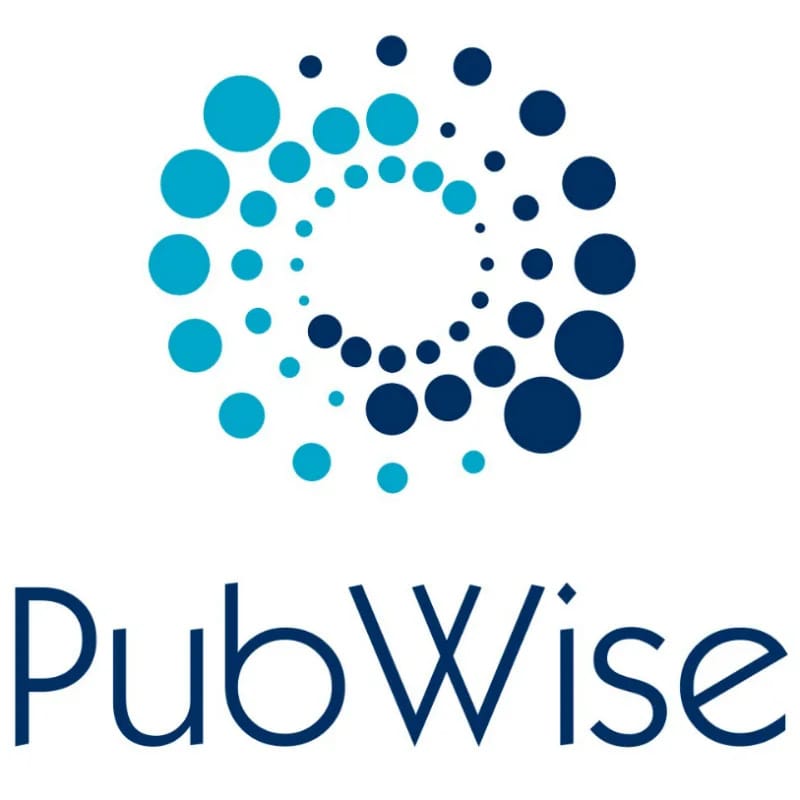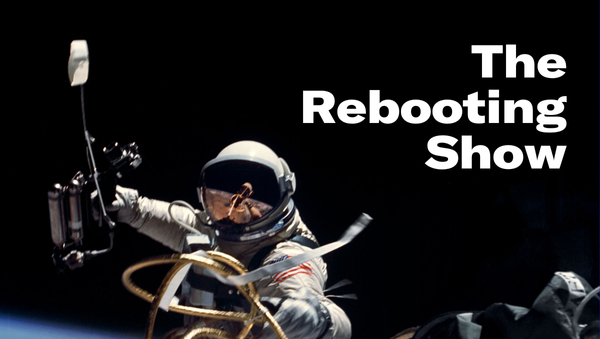New podcast
People vs Algorithms dissects patterns
This week:
- A preview of a new podcast I’m doing with Troy Young
- Thoughts on niche media and commerce, retail media’s rise and web3 PR
Thanks to PubWise for sponsoring The Rebooting. Check out its new eBook explaining the role of advertising logistics in building a sustainable publishing business.

One of the reasons I like podcasts is they’re a more personal form of media. That enables a different type of connection with the audience than a typical article on a website. Similar dynamics are at play with newsletters, since email is a communication medium, and in-person gatherings, which are going nowhere because humans want to congregate.
I’m partial to podcasts like Foreign Policy’s Ones and Tooze and Derek Thompson’s Plain English, shows strike the right balance of conversational tone with expertise.
That’s the approach we hope to take with a new weekly podcast I’m doing with Troy Young. The People vs Algorithms podcast will be different from The Rebooting Show in that it’s going to be slightly less business focused and take a broader view of patterns in media, business and culture. Troy is a great partner for this because he’s one of the most thoughtful people I’ve spoken to over the years about the media business. His People vs Algorithms newsletter has a nice bear and is always insightful, if sometimes a bit long. Each episode will revolve around themes. This week, we tackled the theme of whether media is better now than in the past, along with an exploration of the type of media that’s winning in this kind of environment. It’s narrower, more focused, more niche.
Over time, we’ll add in guests and evolve the show. I’ve always been drawn to making something from nothing, and I know you need to get started and figure it out. Check out the latest episode, our third, along with the pilot and episode 1 – and sign up (and leave a review) for PvA on Apple Podcasts or Spotify. Big thanks to Alex Schleifer of Universal Entities for his collaboration and Jay Sparks of Pod Help Us for producing. Send me your feedback (and sponsorship inquiries): bmorrissey@gmail.com.


Many things are presented as all-or-nothing propositions. The balance between the role of humans and machines in AI comes to mind; so does the programmatic market dynamics of supply and demand. But the answer is nearly always a mixture. PubWise is building the next generation of programmatic technology that uses humans and machines to connect buyers and publishers – quickly, directly and with full observability – eliminating waste and optimizing seamlessly across the advertising supply chain. Created by publishers, PubWise is the trusted programmatic ad monetization partner for top publishers like Academia and Freecycle. Learn more about their technology and the role of advertising logistics to unlock the true value of digital advertising for publishers and advertisers alike.

Recommendations
The companion to the flight to niche is the flight to direct revenue. Niche publications with authority and credibility within their focus communities can make money directly from their audiences beyond subscriptions. Hodinkee is a good example of this, turning what began as a blog into more of a commerce operation. The company claims it did $100 million in revenue last year – unclear if that’s gross or net, so I’ll assume gross – as it become more of an e-commerce than media company. After all, Hodinkee’s editorial staff is a modest 20 out of 160 total employees. (Hodinkee bought watch marketplace Crown & Caliber in Feb. 2021.) The shift from being an orthodox publisher to using publishing as the audience/engagement arm to a commerce operation is tough to pull off. These things always sound intuitive in newsletter writing, only in practice prove very difficult since the businesses are different and have different staffing requirements and operational challenges.
As I noted in my piece about the pivot to niche publishing, investment dollars are going in the direction of niche publishers who can pull a Hodinkee. Recurrent has made its latest acquisition, adding Dwell to its portfolio of home-related publications, along with Domino, Bob Villa and Business of Home. This is the fate of many magazine brands. Like other magazines, Dwell has made a shift from a print-centric model to a digital model, but the biggest opportunities for these brands that still have cachet is to move into licensing and developing products. That will require more capital and expertise than magazines typically have.
The digital ad industry is undeniably changing. There was a time when industry leaders fretted how to attract brand advertising dollars from the safety of TV. It turns out that the internet was always best suited to direct marketing. Rebranding that as “performance marketing” made the capitulation more palatable. Thanks to changes in the privacy landscape, the new power players emerging in the broader digital advertising landscape are coming not from content publishing but from commerce. Tying impressions to the “SKU-level” performance is a good sales proposition.
The web3 conviction check has arrived. During bubbly times, it’s easy to be a true believer. Tough times, different story. Lucas Shaw of Bloomberg’s Screentime newsletter – a great read – checked in on the progress of Hollywood’s hyped crypto projects, and he unsurprisingly found the ardor has cooled. It’s one thing to issue a press release and get the coverage, and it’s another to actually follow through after the price of digital assets has plummeted. Spotify had announced a confusing idea of a podcast “set in the world of nonfungible tokens and got major celebrities who owned NFTs, such as Jimmy Fallon, Kevin Hart and Snoop Dogg, to voice the characters.” Never made sense to me, and as luck would have it, I won’t have to figure it out because Spotify has put the idea on the shelf.
I’m speaking at the Piano Academy in Philadelphia on Nov 2 and 3. I’m going to talk about the limits to optimization in driving direct revenue and advocate for a more human-centered approach. The event brings together executives from top publishers like CNBC, Slate, Vice and the Baltimore Banner to discuss the details of running subscriptions programs. If you’re interested in attending, check out the agenda.
Successful solo newsletters will likely become more like regular publications, repeating the progress seen in the blog era. Casey Newton’s Platformer is a true newsletter success story, with 75,000 free subscribers and “thousands” of paid. (A 5% conversion rate would mean 3,800 paid subscribers.) Now, Casey’s bringing on Platformer’s first employee as the newsletter branches into a podcast and brings on help with operations and business.
The increasing threat of recession is going to unfortunately lead to more tough cuts to publications that are caught in the middle. Boring has won on the internet, so sites like Mel or even Late Mic and Input can produce original and differentiated work, only the audiences that attracts are too small for the mass ad systems, lacking shopping signals for commerce models, and not specific and high value enough for niche models.

Thanks so much for reading. If you’re interested in sponsorships, please check out The Rebooting’s sales kit. For all feedback, send me an email: bmorrissey@gmail.com.




